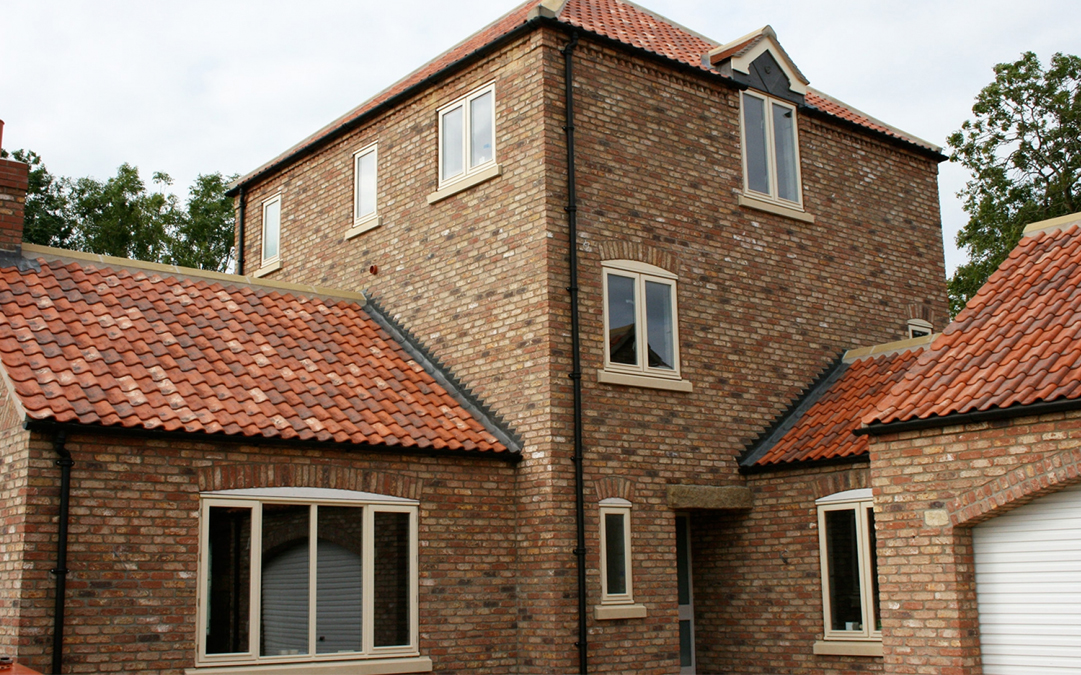Burglaries and home invasions are commonplace in the UK with one taking place every 106 seconds. This is why a home security system is crucial to ensure the safety and security of your family and property. Being the victim of a burglary can have a devastating impact on our lives, both emotionally and financially. To protect ourselves and loved ones from going through a traumatic home invasion, having a security system put in place is one option. There are alternative security measures we can put in place that can be just as effective in keeping your home secure. This guide will explore how to protect your home without a security system, the reasons for not having one, and the alternative ways to stay safe in our homes.
- Reasons For Not Having A Security System
- Alternative Security Measures Without A Security System
- Reinforcing Doors and Windows
- Install Deadbolts
- Use Security Bars
- Reinforce Glass Window
- Install Door and Window Sensors
- Upgrade Door Locks
- Securing Sliding Doors
- Outdoor Security Measures
- Outdoor Lighting
- Use of Timers
- Defensive Landscaping
- Build a Relationship With Your Neighbours
- Deterring Burglars
- Signs of Occupancy
- Security Decals and Stickers
- Smart Home Security
- Smart Locks and Video Doorbells
- Smart Lighting and Appliances
- Smart Home Security Apps
- DIY Home Security Systems
- Conclusion
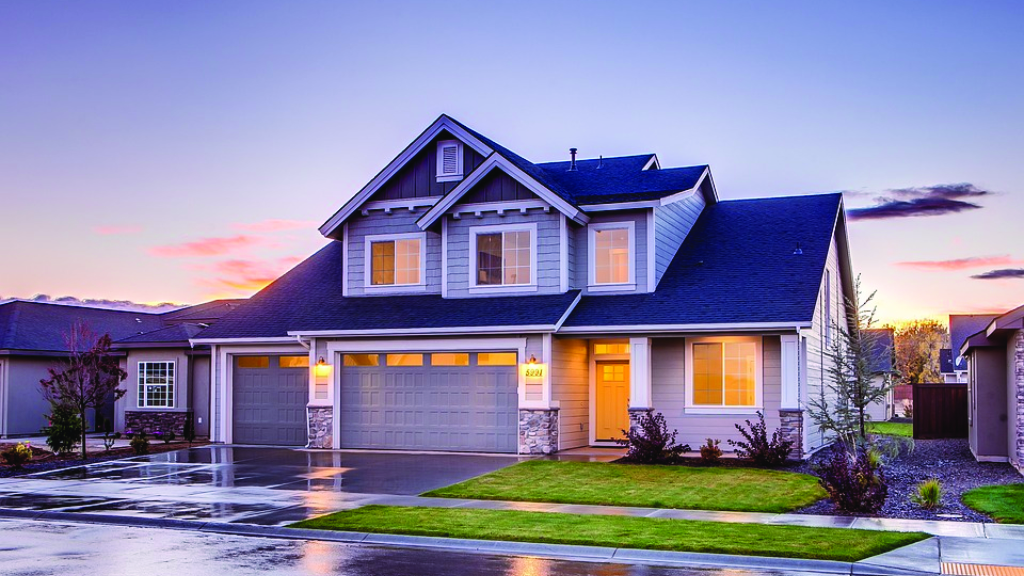
Reasons For Not Having A Security System
When exploring the precautions you can take to protect your home, installing a security system might be at the forefront of these considerations. Having a security system comes with its disadvantages you may not have considered.
Cost
Security systems can be expensive to install and maintain, which may not be feasible for some homeowners. Firstly, consider the cost of the equipment. Depending on the security system you choose and how robust it is, there will be a cost for security cameras (£50 – £270), alarm systems (£125 – £800), and other security devices. You may also have a monthly coverage cost, along with an activation and installation cost. A security alarm specialist will cost £150-£200 per day on average for the labour of installing a security alarm system. The overall price can vary depending on the type of system that you choose. The average cost of a home security system is around £165-£470.
False Alarms
When a security system or its sensors have low batteries or are not connected to a reliable power source, it can trigger alarms. This can be inconvenient and costly, as there will be an ongoing cost to the maintenance of the security system. You will also have to give time to ensure the batteries do not get too low.
Privacy Concerns
The popularity of security camera systems has risen in recent years. However, it may leave homeowners feeling vulnerable and fearful that their privacy could be invaded. In 2020, a homeowner noticed an unfamiliar email address connected to their home security account. It was revealed that a technician had logged into the professional home security system and spied on the customer. This only reinforces how important it is to use a reputable company and to keep all apps associated with the monitoring system up to date.
Maintenance
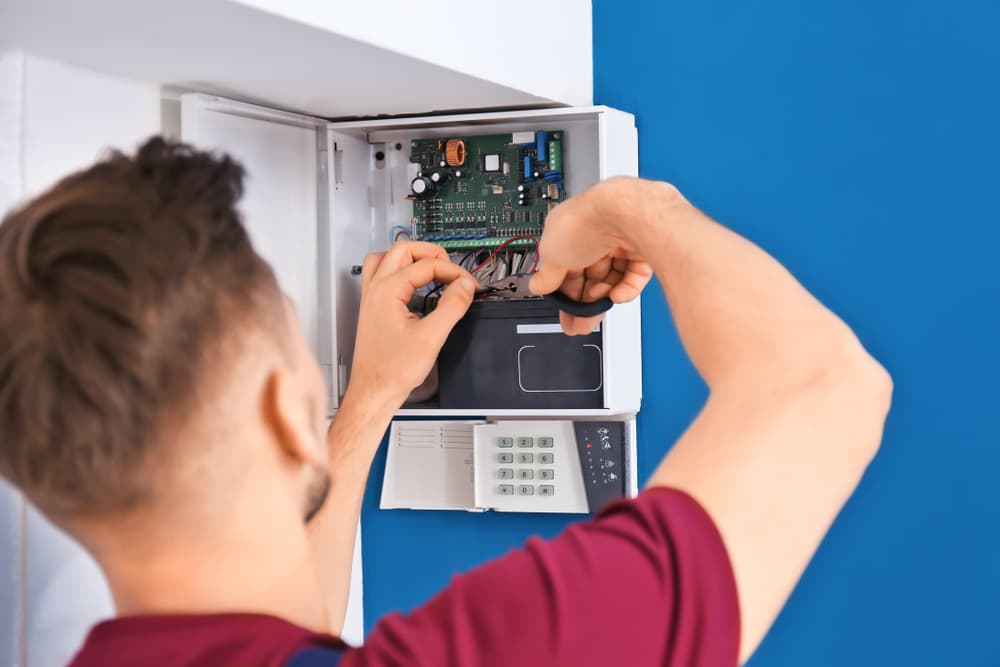
Security systems require ongoing maintenance to ensure they function properly, which can be time-consuming and expensive. Most alarm systems require an annual service.
Please note:
For alarm systems with a police-approved monitoring component, it may be necessary to have the system serviced every six months. It’s important to check with your home insurance company whether they would require a more regular check too. There is also the cost of fixing faulty equipment to consider.
Limited Effectiveness
Anti-burglary security comes in various forms, and there is mixed evidence about its effectiveness. Some devices are more successful in deterring burglaries and protecting homes than others. A study from the Security Journal, states that the combination of ‘basic security’ measures, such as indoor lights, window, and door locks, is a very effective way to protect your home. This highlights how you do not need to invest in numerous security measures to gain protection for your home.
Personal Preferences
Anti-burglary security comes in various forms, and there is mixed evidence about its effectiveness. Some devices are more successful in deterring burglaries and protecting homes than others. A study from the Security Journal, states that the combination of ‘basic security’ measures, such as indoor lights, window, and door locks, is a very effective way to protect your home. This highlights how you do not need to invest in numerous security measures to gain protection for your home.
Renting
If you are renting your home, it may not be possible to invest in a new security system due to lease agreements, and other restrictions. For example, if you have neighbours, they may object to security cameras that may intrude on their privacy.
Alternative Security Measures Without A Security System
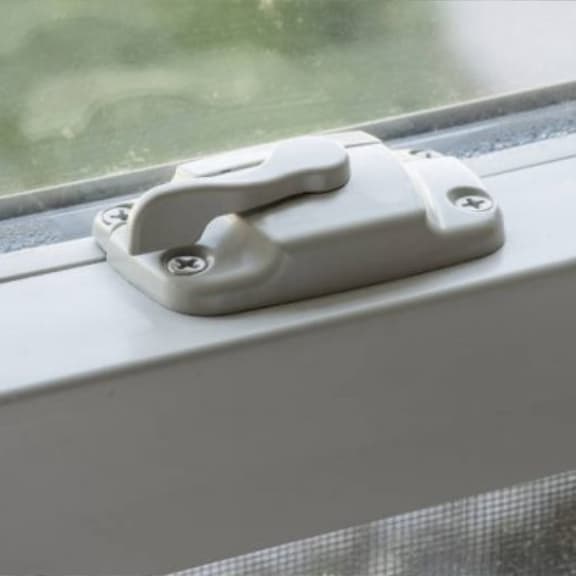
There are many inexpensive security measures available to ensure your home, loved ones, and possessions are kept safe.
Reinforcing Doors and Windows
Reinforcing doors and windows in your home is the best place to start when making your home more secure. According to research from Asecurelife.com, most burglars enter homes through doors and windows. Thirty-four per cent of burglars gain entry through the front door, while 22 per cent get in through the back door. Twenty-three per cent use first-floor windows. Therefore, a weak front door or vulnerable locks can invite unwanted intruders into your home. Here are some ways you can reinforce doors and windows.
Install Deadbolts
Deadbolts are a simple and effective way to secure your doors. They are much stronger than traditional locks and can withstand significant force. The deadbolt must extend deep into the door frame to provide maximum security. Take a look at this video that illustrates how you can install a deadbolt at home.
Use Security Bars
Security bars are a cheap and effective way to enhance the security of your home. The bars prevent burglars from forcefully breaking into your home and are a visual deterrent. Security bars are installed on windows and sliding glass doors to prevent them from being opened. They come in various sizes and styles and can be custom-made to fit your specific windows and doors.
Reinforce Glass Window
Glass windows can be a vulnerable point of entry into your home and a target for opportunistic thieves. One way to reinforce glass windows is to install shatter-resistant window film. This film makes the glass much more difficult to break and can help prevent a burglar from gaining entry.
Install Door and Window Sensors
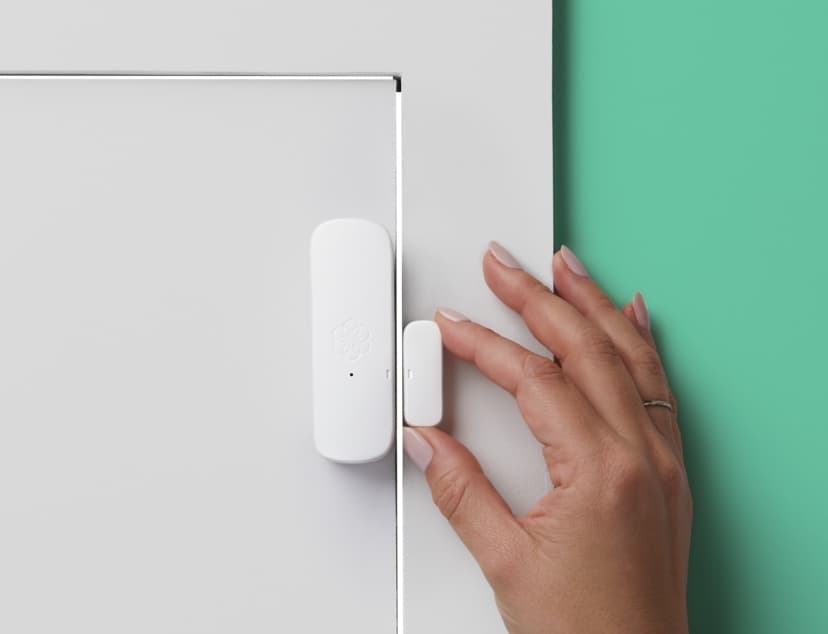
Door and window sensors are a common feature in security systems but can work independently. These sensors can detect when a door or window opens and trigger an alarm, alerting you to a potential break-in. There are generally three main types of window sensors – contact sensors, glass break sensors, and motion sensors.
Upgrade Door Locks
Traditional locks are often easy to pick or break, making them ineffective at keeping burglars out. Upgrading your locks to a high-security option like a smart lock can provide additional protection and peace of mind. Our range of door locks, including Sash locks, Long-Throw Locks, and Rim Cylinders are for both internal and external doors, which will help to enhance your home security affordably.
Securing Sliding Doors
Sliding glass doors are an attractive modern feature in a home. They do come with a risk as they can be easily lifted off their tracks by burglars. To prevent this, the strongest way to secure your sliding door is with a sliding door lock. Install the locks at the top of the door where the stationary glass and sliding glass doors meet. These locks work in addition to the door locks, making it impossible to force the door open from the inside or the outside. The locks come with two locking positions: one that will lock it completely closed and a second that will let you lock the door in place at either 3 or 6 inches open to allow for ventilation. You could also place a wooden dowel or broomstick on the track to prevent the door from being opened.
Outdoor Security Measures
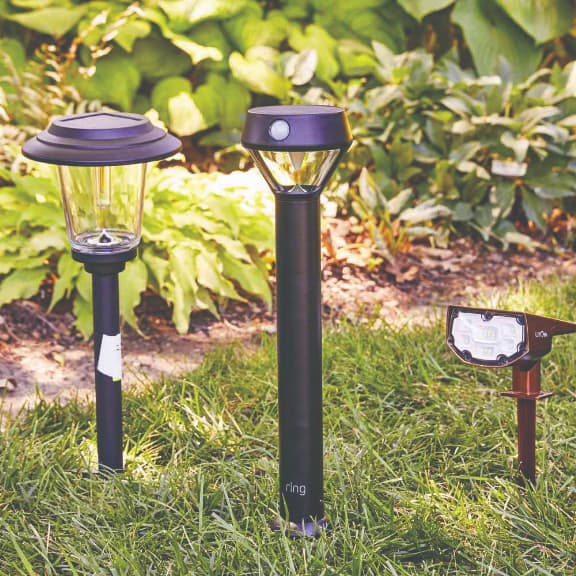
Outdoor security measures are an important aspect of protecting your home from burglars and intruders. By securing the outside of your home, you can deter potential intruders from attempting to enter your home. Here are some outdoor security measures that you can implement:
Outdoor Lighting
Burglars prefer to operate in the dark, so having a well-lit exterior can help discourage them from attempting to break into your home. If their activity is displayed by outdoor lighting, neighbours and passersby are more likely to see opportunistic thieves. An affordable option is motion-activated floodlights, which will turn on automatically when someone gets too close to your property. Motion security lights are cost-effective as the lights do not need to be on throughout the night but only when motion is detected, which will help lower energy bills and not waste energy.
Use of Timers
Timers can also turn on outdoor lights, creating the impression that someone is home even when you are at work or on holiday. Depending on the product used, the timer may be digital or manual, and some high-tech lighting systems use an app as the control board. This time-saving option means you simply set the timer once. You then do not have to maintain, especially if you use LED bulbs that last many years.
Defensive Landscaping
The landscaping of your front garden can also play a role in your home’s security. You mustn’t be providing burglars with cover to carry out their crimes. Firstly, make sure to trim back overgrown bushes or trees that obscure the front door and windows of your home. Also, remove any trellises positioned against walls as this provides a way for burglars to climb up to the second storey of your home. You could also position prickly plants, such as holly, roses, and cacti, near windows and doors to make gaining entry more difficult.
Build a Relationship With Your Neighbours
Get to know your neighbours to help build a sense of community. This will make it more likely that you will actively look out for each other’s property. You could also establish a neighbourhood watch programme and start a WhatsApp group to report suspicious behaviour. Building relationships with your neighbours is a free and effective way to deter potential burglars from invading the homes in your neighbourhood. By implementing these outdoor security measures, you can create a safer environment for your home and deter potential burglars. Remember, a combination of security measures is often the most effective, so consider implementing multiple measures for maximum protection.
Deterring Burglars
Most burglars are not master criminals and are often opportunistic in their criminal behaviours. They’re usually young men looking for an easy opportunity to get into a house without being seen. This is why it is so vital that you ensure you are deterring burglars from choosing your home to break into. These are simple methods to deter burglars that are inexpensive yet effective:
Signs of Occupancy
Burglars often target homes that appear empty as they are less likely to be disturbed or caught. Creating the impression that someone is home can be an effective deterrent. Install timers to turn on lights or the television to give the impression that someone is home. Have a trusted neighbour collect your mail or newspapers while you’re away to avoid a visual buildup on your porch and create the appearance that someone is home.
Security Decals and Stickers
Even if you don’t have a security system installed, displaying security decals or stickers can deter criminals away from your home. Burglars are more likely to avoid homes that give the impression of having a security system, as they don’t want to risk setting off an alarm and getting caught.
Smart Home Security
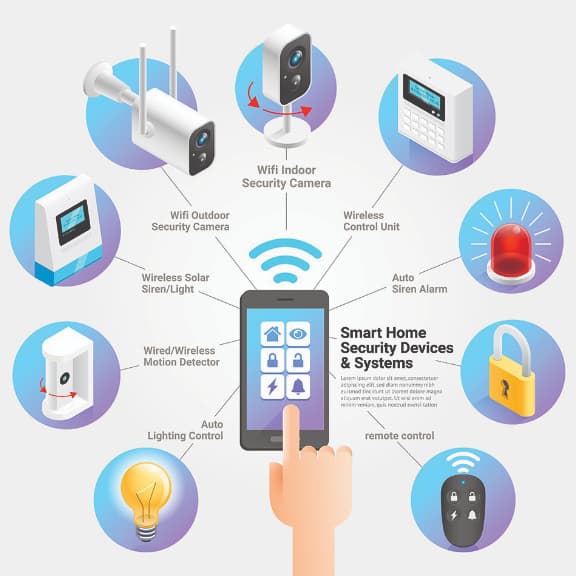
Smart home security refers to various devices that use the internet to monitor and control various aspects of home security. Depending on your needs, you can choose a system you can monitor, or pay a subscription fee to have professionals watch your home 24/7. You can even take advantage of on-demand monitoring services when away on holiday. Of course, the more coverage you have, the more you should expect to pay. Here are some ways that smart home security can help protect your home:
Smart Locks and Video Doorbells
Smart locks and video doorbells are two popular smart home security devices. Smart locks allow you to control who enters your home by using a keypad or a smartphone app. Video doorbells use a camera to show who is at your front door and allow you to speak to them remotely. These devices can help you monitor and control access to your home even when you’re not there. There are affordable options on the market that will give you peace of mind that your home is secure.
Smart Lighting and Appliances
Smart lighting and appliances can simulate occupancy, making it appear that someone is home even when the house is empty. Smart bulbs and switches are controlled remotely using a smartphone app or a voice assistant, allowing you to turn lights on and off from anywhere.
Smart Home Security Apps
Many smart home security devices have apps that allow you to monitor and control them from your smartphone. These apps can provide real-time alerts and notifications when a security event occurs, which allows you to respond quickly and appropriately.
DIY Home Security Systems
DIY home security systems are becoming increasingly popular, and many are easy to install and use. These systems typically include various devices, such as cameras, sensors, and alarms, that you can control using a smartphone app or a voice assistant.
Conclusion
In this guide, we’ve explored a variety of alternative security measures that will protect your home without a security system. These include reinforcing doors and windows, outdoor security measures, deterring burglars, smart home security, and emergency preparedness. Protecting your home is an ongoing process, and it’s important to stay vigilant and take steps to maintain your home’s security. By implementing the alternative security measures outlined in this guide and staying up to date with new security technologies, you can help keep your home and family safe. For additional resources on home security, consult with a professional security consultant or your local law enforcement agency.


